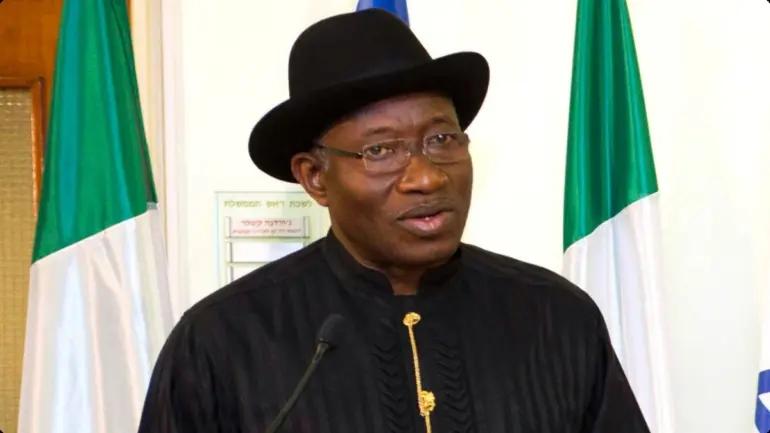Former Nigerian President Goodluck Jonathan has described the 2014 abduction of the Chibok schoolgirls as an “indelible scar” on his legacy, one he says he will carry for life.
Speaking on Friday at the launch of SCARS: Nigeria’s Journey and the Boko Haram Conundrum, a memoir by former Chief of Defence Staff General Lucky Irabor, Jonathan reflected on the trauma of the incident and praised Irabor’s integrity and service.
“The title of this book is quite interesting. One of the major scars on my government is the Chibok girls,” he said. “As Bishop Kukah noted, no plastic or cosmetic surgeon can remove it. It is a scar I will die with.”
The abduction of 276 schoolgirls from Chibok, Borno State, by Boko Haram in April 2014 sparked global outrage and the viral #BringBackOurGirls campaign. Though over 180 girls have since been freed or escaped, more than 80 remain missing.
‘Boko Haram more complex than assumed’
Jonathan also spoke on the broader security challenges posed by Boko Haram, which began its violent insurgency in 2009 during his tenure as Vice President under President Umaru Musa Yar’Adua.
“I battled Boko Haram for five years as President,” Jonathan said. “I thought President Buhari would wipe them out quickly, but they remain.”
He warned that the insurgency is far more complex than commonly believed, stressing the need for a more nuanced approach: “We must approach Boko Haram differently. The carrot-and-stick method may be required.”
The former president also raised concerns about the group’s access to sophisticated weapons, suggesting that external forces may be involved in sustaining the insurgency:
“Sometimes they had more munitions than our soldiers. That does not reflect the actions of hungry villagers.”
Jonathan’s administration faced intense criticism over its handling of the Chibok abduction, particularly for delayed public communication and reluctance to accept foreign assistance.
Civil society groups accused his government of poor coordination and politicising the crisis, while many families of the abducted girls expressed frustration over what they saw as a lack of urgency and transparency.
Jonathan, however, defended his initial silence, saying it was intended to protect ongoing investigations and intelligence operations.
Over a decade after the mass abduction, efforts to locate the remaining girls continue. According to official figures, 189 girls have been rescued or released, while dozens remain unaccounted for — including Leah Sharibu, abducted in 2018 for refusing to renounce her faith.
Many of the survivors have struggled with trauma, social stigma, and interrupted education. Some returned home with children born during their captivity.
The Nigerian government has maintained that securing the release of the remaining girls remains a national priority.


